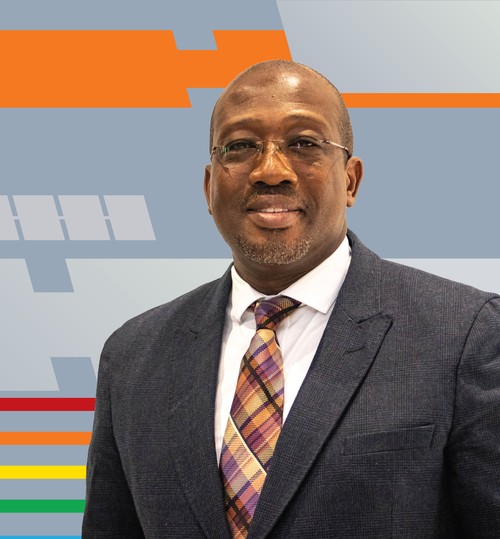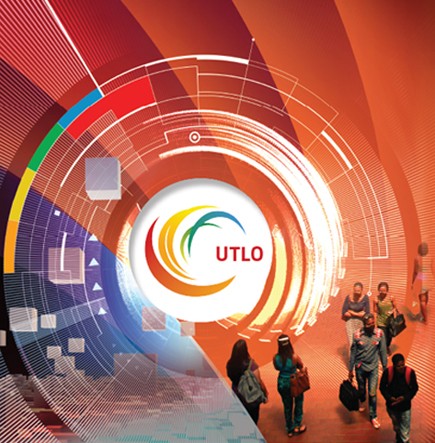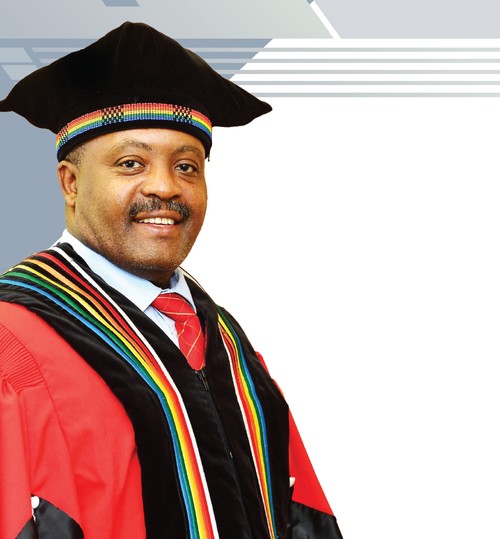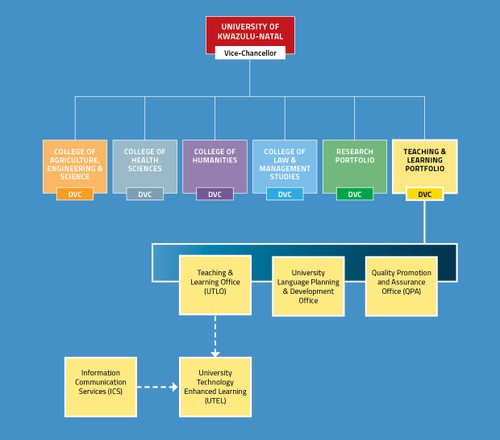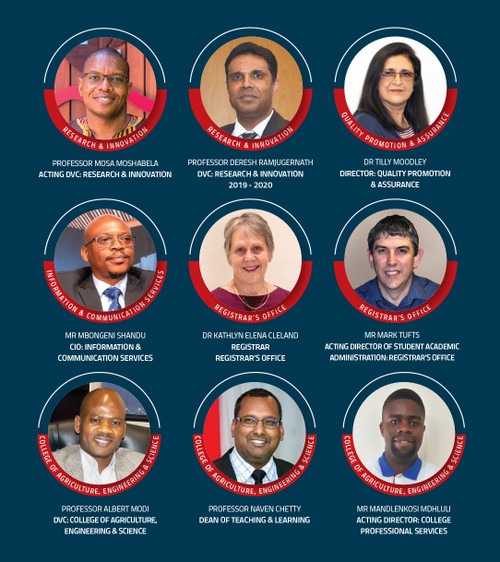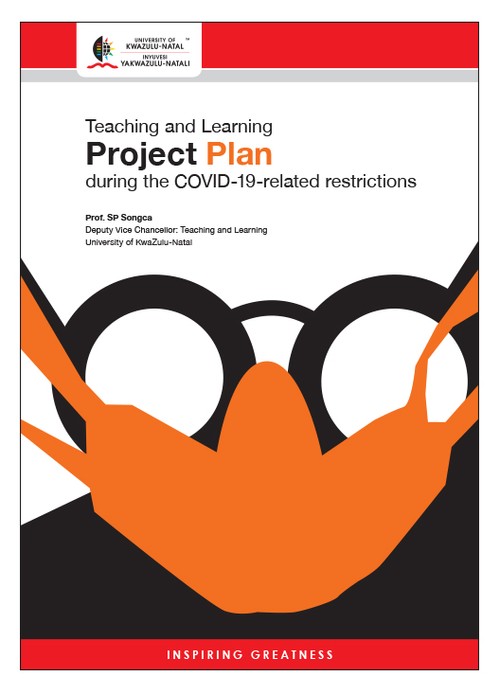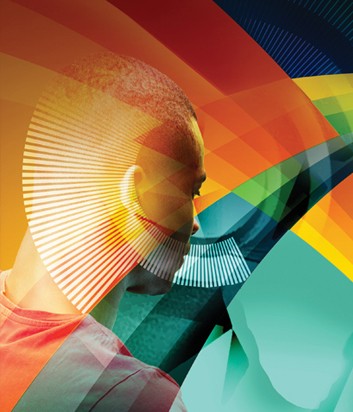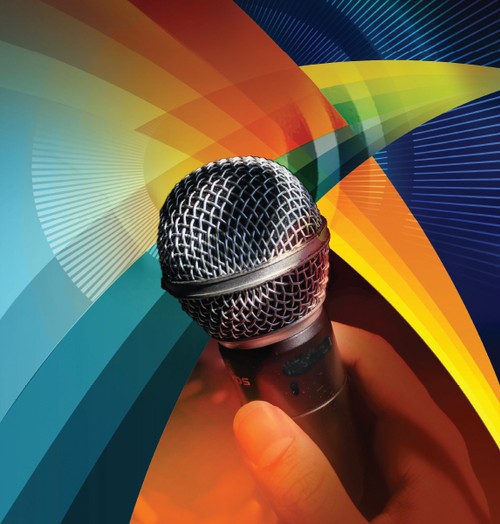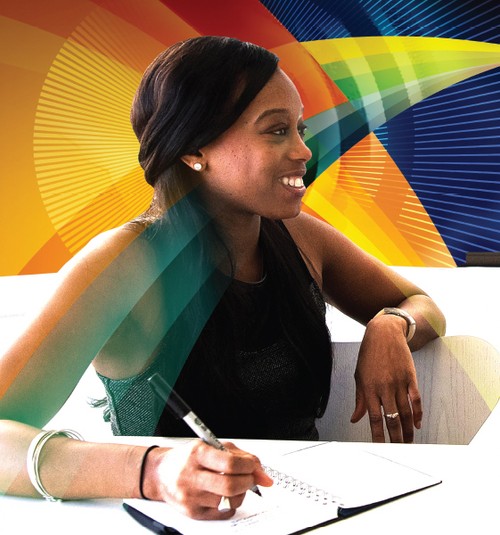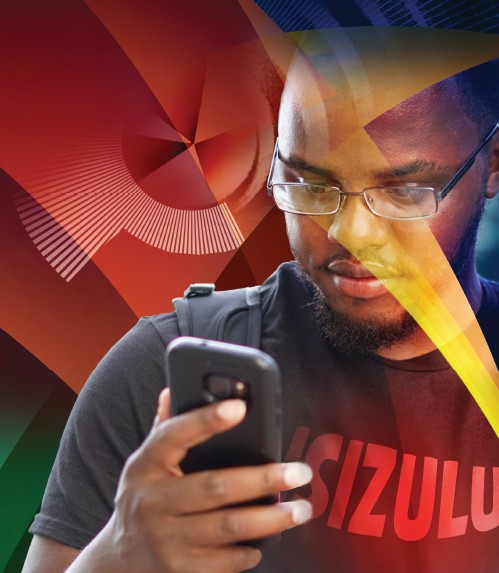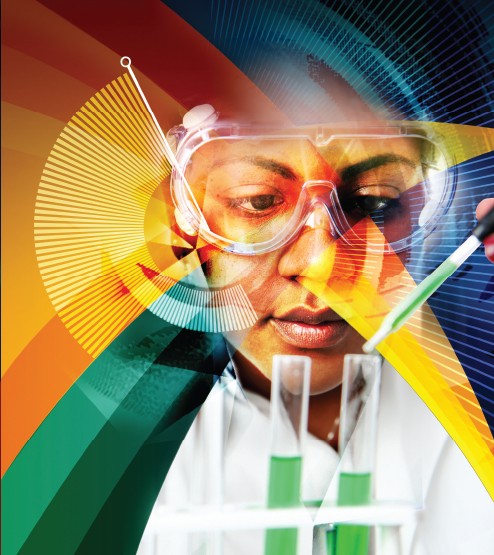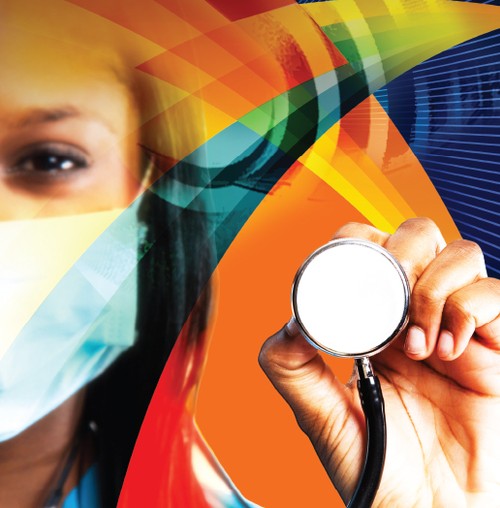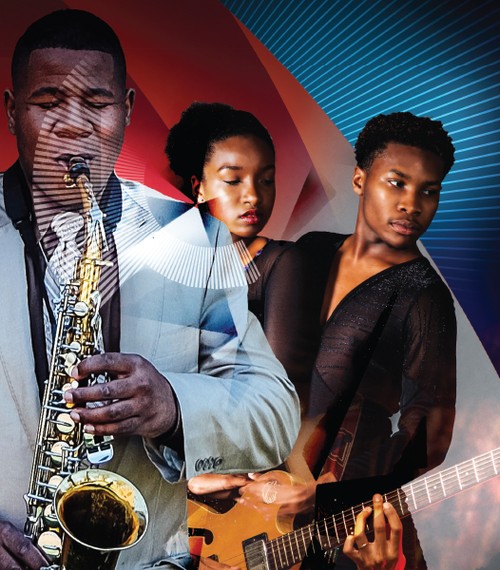The Teaching & Learning Unit in the College of Agriculture, Engineering and Science (CAES), headed by Professor Naven Chetty (Dean, Teaching & Learning), with the support of Academic Leaders (Teaching & Learning) of the various Schools and the ADOs in the College, played an active role in the sudden and inevitable transition from face-to-face teaching and learning to remote, online platforms, brought about by the onset of the COVID-19 pandemic.
Teaching & Learning Activities
Activities in 2019 remained committed to transformation, excellence in teaching and learning, and improving the AMS offered to students at large; one of the main highlights was the successful organisation of the 7th Academic Monitoring and Support Colloquium by the CAES. The focus of teaching and learning in 2020, on the other hand, was primarily an adaptive one to support the continuity of teaching and learning through online platforms. With the introduction of online learning in the second quarter of the first semester in 2020, the College introduced innovative ways to ensure that staff members were equipped with the required knowledge, skills, and resources to maneuver this period to promote student success at the end of the academic year. The College was proactive in setting up a website with all the teaching & learning resources to equip academic staff for remote online teaching.
A summary of the teaching & learning activities undertaken in CAES during the 2019/2020 period covers the following topics: Training/workshops; curriculum transformation, technology enhanced learning; teaching innovations; curriculum development; language transformation; community engagement; research in teaching & learning, and academic monitoring and support. The majority of these activities were funded by the UCDP.
Digital Teaching and Learning series
The COVID-19 pandemic resulted in a sudden shift from face-to-face teaching and learning to online platforms in 2020. This required teaching and learning leadership in the College to reinvent their teaching and learning environments. In order to equip the academic staff to teaching online, the CAES Teaching & Learning Unit, under the leadership of Professor Naven Chetty, the College Dean (Teaching & Learning) initiated the Digital Teaching and Learning series. Several trainings and workshops were organised as part of this series (the links for the workshops and training are available on the CAES teaching and learning webpage - https://caes.ukzn.ac.za/teaching_and_learning/). A list of the various workshops/training organised as part of the series is provided in table 11.
 Table 11. CAES Digital Teaching & Learning series workshops/training in 2020 semester 1
Table 11. CAES Digital Teaching & Learning series workshops/training in 2020 semester 1
Curriculum Transformation
As part of curriculum transformation and technological advancement, academics in the School of Chemistry and Physics (SCP) undertook research that involved designing a low-cost experimental setup for research, teaching, and learning; for example, Instrument VERA, Environment monitoring station, Afrikino Quasi computer, and Portable experimental board. The design developed helped students to learn how different disciplines interact as required for the 4IR.
In the School of Engineering (SE), Professor Anne Stark, through a grant from the JW Nelson Fund, initiated a project to “transform the undergraduate curriculum of the School of Engineering to adapt to the rapid changes in society, technology and the environment in the African, but specifically the South African context in response to the fourth industrial revolution”. This project is expected to be piloted in 2021 within the discipline of Chemical Engineering and will be led by the programme coordinator for the discipline, Mrs Anusha Singh. Various stakeholders from industry and academia are expected to participate in an upcoming stakeholder engagement session in this regard.
Teaching and Learning with Technology
The move to online teaching and learning enhanced the capacity and working knowledge of various online platforms in teaching. In 2020, the School of Life Sciences (SLS) developed an Online Teaching and Learning Support Platform on Moodle to assist staff in transitioning to online teaching and learning. It consists of curated digital resources to record lectures, videos, animations and simulations as teaching aids, including live teaching/virtual classrooms, discussion fora and chat rooms, collaborative learning, curation and creating, assessment, Moodle tips and tricks, virtual labs. The School also benchmarked indicators of student performance (module pass rates and class averages) against 2019 data to understand changes resulting from the shift to online assessment. In the School of Agriculture, Earth and Environmental Sciences (SAEES), YouTube videos were used to conduct virtual field trips related to subjects such as Crop Science, while virtual patients were used for patient counselling in topics like “Therapy Internship in Dietetics”, and “Counselling Principles and Ethics in Dietetics”. Dr Mkhwanazi, an academic in the School, opted for an online simulation approach where students could virtually conduct Human Physiology experiments, gather data, and write reports. The students thoroughly enjoyed the experience. Dr Mkhwanazi is in the process of testing software, Riddel, initially developed by Dr Pieter Ackerman, that could possibly be used to conduct online assessments in the future.
Teaching innovations

The SLS developed a community of practice to enhance its online teaching and learning experience. A student guide was developed for online learning, integrated with the community of practice and with student input. The School also proactively developed virtual laboratory activities through LearnSci, Virtual Laboratory, HHMI BioInteractive, JoVE, LabExchange and others, which allowed it to retain some of the visual, interactive and interesting aspects of the missed laboratory experience. It will retain these activities for future use as a means to enrich students’ engagement and learning experience. Virtual online practicals were also adopted by academics in the SCP; simple pendulum and spiral spring are examples. Some of the practicals where the students needed to learn how to use an experimental setup were done using pictures while a few academics developed their own devices to assist students with practicals.
In the School of Mathematics, Statistics and Computer Science (SMSCS), Dr Amery attempted semi-flipping of the classroom for the module MATH349H1. Videos were posted on Moodle, and students were expected to view the videos prior to timetabled contact sessions. In the contact sessions, the lecturer reviewed the content in the videos and discussed it via question and answer sessions; the lecturer also focussed on problem-solving and soliciting novel questions from the class. A similar approach was also used by this academic in MATH236W1.
Professor Maharaj and his team initiated e-learning and assessments for Mathematics modules as part of blended/online learning innovations. The project aimed to improve teaching and learning of first-level university mathematics. As part of this initiative, learning material was developed, focusing on pre-calculus mathematics, diagnostics for MATH130 and MATH140, online material for MATH134 and MATH140, and online support for first-year engineering mathematics. Students were encouraged to attempt diagnostic quizzes as part of the tutorials. These were expected to help them to understand their areas of weaknesses so that they could access the necessary academic support (from tutors, lecturers, available resources) to help them improve academically.
Students were also expected to interact with the online material made available while learning and address any academic query with the relevant academic staff. Many academics in the School were also involved in developing online assessment tools and new online course resources in an attempt to effectively realign teaching and learning to online platforms.
A blended learning approach was also used in the Dietetics and Human Nutrition discipline in the SAEES. All South African universities that train future dietitians formed subject/module/discipline-specific groups that communicated via WhatsApp groups, email and Zoom. By sharing resources and exchanging ideas, a simulated type of Work Integrated Learning (WIL) was made possible without students being placed in the workplace. Even when lockdown restrictions were eased, students were exposed to onsite WIL on certain days of the week while engaging with blended learning activities on other days.
Teaching innovations undertaken in the discipline of Chemical Engineering, SE in 2020 are discussed below:
Use of JoVE Video Platform for Practical Modules
The restrictions on contact practical work required many lecturers for ENCH2ET and ENCH3CP (Mr Elly Obwaka, Mr Nivaar Brijmohan, Prof Amir Mohammadi, Dr Kuveneshan Moodley and Prof Prathieka Naidoo) to make extensive use of the JoVE video platform for their respective courses in 2020. Practical training video libraries, equipment descriptions, quizzes and questionnaires were used to help students understand experimental methods and apply these in an engineering environment; these also equipped them with skills to analyse and interpret experimental data and to communicate effectively in both oral and written format.
Virtual Design Studios
The restrictions on access and movement of students within the campuses in 2020 made the final year design project in Chemical Engineering challenging as it traditionally involved both individual and group components. Virtual design studios were used to enhance the interaction between group members of the project. Various platforms such as Zoom, Google Meet and WhatsApp were utilised to streamline these sessions. The overall performance of the 2020 design class was highly commended by the external examiner, a professional design engineer, who commented, “even the average student in this course at this university would be above average elsewhere as an industry entrant”.
One of the major challenges during online assessments in 2020 was preventing cheating by students. To mitigate this issue to an extent, the SCP’s Dr Mariola used random value variables when formative and summative assessments were set. The structure of a quiz/test consisted of the main question, which proposed different data for any student, and five other choices with only one correct answer. The wrong answers were set so that the proposed result occurs when the student does not solve the exercise correctly; for example, when the student does not use the correct equation. If the student solves the given problem by using the wrong equation and obtains one of the five proposed results, and if cheating took place, the second student would also have given the wrong answer. Although Moodle could possibility set the value ranges for the random value, if not correctly set, it can produce an equal numerical answer for all five choices. To this end, Dr Mariola developed software that could mitigate this error. The lecturer also used the WhatsApp platform to engage students in ‘science games’ where they interacted well with one another.
Curriculum development
An Academic Integrity Course was developed by the SLS in response to increased plagiarism and cheating in online assessments and assignments. The course will be implemented in the first semester of 2021. A four-year BSc Dietetics and Human Nutrition degree (as opposed to the three-year BSc Dietetics and postgraduate Diploma in Dietetics) was offered for the first time in 2020 in the SAEES. As the new professional degree (accredited by the HPCSA) included numerous modules and course content not previously offered, it initially proved challenging to meet the module exit level outcomes while making use of blended learning techniques. Nonetheless, external examiner feedback was favourable for the four new third-year modules that were offered for the first time while internal examiner feedback was favourable for the two second-year modules that were offered.
Language transformation
Research has shown that students’ cognitive abilities and conceptualisation may improve with instruction in their mother-tongue. Schools such as the SLS and SMSCS offered academic support in the form of supplemental instruction sessions in isiZulu as the majority of students are isiZulu speakers. Attendance in these sessions was relatively higher compared with the corresponding sessions in English; the initial evaluation of the programme was promising and it will be investigated further in 2021. The use of home language also proved effective on online platforms for some modules in 2020. During remote online teaching and learning, students resorted to the WhatsApp platform for module-specific queries and discussions. The use of a combination of text, screenshots, videos, voice messages and home language provided a useful platform that supported the blended system of learning.
In 2019, the SE initiated a project involving ‘term harvesting’, led by Dr Malusi Mkhize. It aimed to develop isiZulu terminology as part of the intellectualisation process to equip the language for teaching, learning, research, and innovation in the SE. As part of the project, an initial set of 500 scientific and engineering terms unique to the discipline were collected during the 2019/2020 period. Progress on the project was hampered by the COVID-19 pandemic but it will possibly be resumed soon. As part of language transformation, Bi-Lingual Moodle Content Delivery was initiated by one of the academics from the SMSCS, Mr Luke Vorster with the support of Ms Guy from ICS. This included the development of multi-language teaching and learning content in Moodle, including content editor support. The functionality was successfully added to 2020 Moodle and will be continued in the Learn2021 version. As part of the project, user guides (Demonstration Moodle Module and Kaltura Video) are currently being developed.
Community Engagement
As part of community engagement, final year Dietetic students in the SAEES participated in World Food Day activities on the Pietermaritzburg campus that included an interactive display and cooking demonstrations. A number of outreach visits were conducted to clinics in and around Pietermaritzburg as part of National Nutrition and Obesity Week.
The lockdown interrupted conventional schooling due to school closures across the country. Dr Mariola, in his capacity as the President of the Rotary Club, Durban, Umhlatuzana, assisted many matriculants in the community by organising extra tuition. The tutors, named ‘legends’, were UKZN students who voluntarily offered their math skills to help Mariannridge Secondary School. This proved to be a mitigation plan that improved the students’ pass rates.
Research in Teaching and Learning
The AMS staff, with the guidance and support of the College Dean (Teaching and Learning), Prof Naven Chetty continued with research on various aspects of teaching and learning, which resulted in the publication of a research paper on Supplemental Instruction (Varghese et al., 2020. Effect of Student Attendance in Supplemental Instruction Programmes on their Academic Performance: A Case Study at the University of KwaZulu-Natal, South Africa. Technology Reports of Kansai University, 62 (4): 7003 - 7019.
Other projects which are currently in different stages of completion are:
- Analysis of matric entrance requirements on the performance of students enrolled in undergraduate programmes in the School of Life Sciences, UKZN.
- Staff perception of University Education Induction Programmes in CAES (currently under review).
- Investigating the reasons for poor performance of students on negative term decision in the School of Life Sciences.
The Teaching and Learning Unit in the CAES in collaboration with the CHUM was also involved in developing, administering and evaluating surveys on the teaching training needs of UKZN staff and student experiences during online teaching and learning in 2020. The results of the survey identified possible interventions for smooth transition to remote teaching and learning.
Academic Monitoring and Support
With the migration of teaching and learning to online platforms, it became necessary to digitally adapt AMS programmes. All the AMS programmes in the CAES – Supplemental Instruction, HOT seat tutorials, Writing Place (WP), Peer Mentorship Programme, Residence Tutorials, and academic consultations with students, were offered virtually via online platforms such as Moodle, WhatsApp and Zoom. Due to the restrictions imposed by the lockdown, residence tutorials could not be offered in 2020. All the Schools also set up Academic Support Moodle pages with information on academic support available to students.
Supplemental Instruction Sessions
Supplemental Instruction sessions were organised for level 1 to 3 modules across the five Schools for those with consistently poor pass rates, large student numbers and/or bottleneck modules. In 2019, the sessions were facilitated face-to-face but in 2020, they were facilitated via online platforms. Although the online sessions were quite challenging with limited student participation, the sessions organised late in the night were well attended as the students could make use of the midnight data provided to them.
HOT Seat Tutorials
These were organised as drop-in contact sessions in 2019 where students could obtain one-on-one assistance without making a prior appointment. With the move to online learning in 2020, the HOT seat tutors had to adapt to online platforms to provide assistance. HOT seats were mainly offered in the following schools: SE, SMSCS, SCP and SAEES.
The Writing Place
Writing Place tutors in the SLS, SE and SAEES assisted students with academic writing skills which included report writing and essay writing. In 2020, the assistance was provided via email and Moodle. The tutors also organised workshops for groups of students to improve their writing skills.
Peer Mentorship Programme
A peer mentorship programme was implemented in 2019 and 2020 in the SLS and SMSCS to strengthen and sustain first-year students in their educational goals and to make university an exciting, fulfilling, and successful experience. During the lockdown in 2020, the mentors had to assist students via WhatsApp and Zoom.
Residence Tutorials
Residence tutorials were only organised in 2019 in the SLS and SMSCS, with the sessions held late in the evening on campus and in off-campus residences. The students thoroughly enjoyed this initiative, which was repeatedly praised by class representatives during their meetings. Unfortunately, residence tutorials could not be organised in 2020.
Academic Consultations with Academic Development Officers
The ADOs met regularly with students on a one-on-one basis in 2019 to review their academic progress while in 2020, the consultations were mainly via email and Zoom sessions. Some Schools had WhatsApp groups where the students could communicate with the ADOs. The ADOs also assisted in identifying students with personal issues with online learning and helped to compile of a list of students who could be invited back to campus when lockdown restrictions were eased.
The ADOs also regularly monitored students’ activities on Moodle for the various modules; those with limited activity were contacted and the required assistance was provided.
Workshops for Students
The academic support workshops that were organised in 2019 had to be moved to online platforms in 2020. Various videos were recorded and uploaded on Moodle to assist students in managing their learning. Workshops organised on the virtual platform included the ROBOT system and BSc degree structure, managing time during lockdown, the importance of proper record keeping of notes and tutorials and how to remain productive during lockdown.
